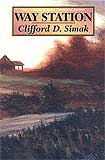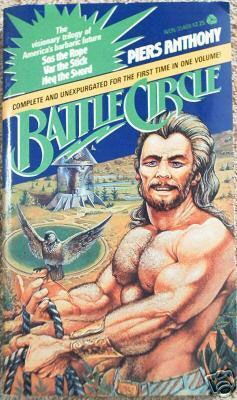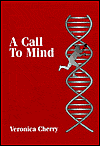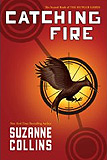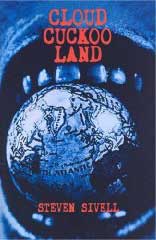
Cloud Cuckoo Land, by Steven Sivell
Book Review by Steve Davidson
Have you read this book?
Dissatisfaction with a book and the time wasted reading it usually doesn't manifest in a physical way. On the other hand, sometimes it does. In this case, reading Cloud Cuckoo Land only made me think of pulling my hair out, engaging in fits, tics and tremors or possibly organizing a public book burning, because actually doing any of those things would have added more wasted time to the enterprise.
This book obviously had a bad copy editor, bad writing, or both. I strongly suspect the 'no copy editor and bad writing' option.
You don't need to read this review any further -- unless you go to the racetrack just for the crashes.
How can I describe this? The concept is completely unbelievable, which wouldn't be so bad in and of itself, except that it's nonsensical as well. As in no logic whatsoever. The world is going to end due to meteor impact, a possible escape for a limited few has been engineered, our main character makes application to become one of the survivors and then spends his time aimlessly wandering through the landscape.
The premise (old) could have been used for an interesting tale. Instead, we get glaring inanity -- for example, the main character is looking for a hotel, using a hand-drawn map given to him by a friend. The map is worn and almost totally unreadable, and then it starts raining, which smears whatever ink was left on the map. Yet no action is taken by the character to memorize or protect it -- he doesn't stick it in his pocket between readings, he doesn't shield it and, despite the unreadability of the map and the previous assertion that he has no idea where the hotel is, he walks right to the hotel. He's not even surprised to have happily come across it -- he just arrives there like he's been coming and going for years.
This thing (and I use the word 'thing' advisedly) reads like multiple drafts of the same basic scenes that weren't edited for continuity.
And then there are the continuity errors: Someone sitting on an amphitheater bench stands up and then their chair squeaks. (When did they change seats?) Someone knocked in the head with a rock blames their falling down on tiredness and unwelcome sexual advances. A character goes through great gyrations explaining that they own all of the international copyrights for knots -- insists on payment for the use of a tie knot -- and then hands out a 'freebie' card. Nothing in the scene provides any explanation or justification for the change of heart. A transsexual waitress wanders on stage, passes a table several times, then exits. Never takes an order and is never heard from again...
I understand that one of the premises of the book is that the world is going to end and that everyone is going crazy; I can understand the author wanting to engender a sense of disconnectedness in order to convey sympathy and understanding for the characters -- but there has to be some solid ground from which the reader can observe all of these things and there just isn't one. Its almost as if the author had read Delaney's "Dhalgren" once (once, in a foreign language, with pages missing, in dim light, while earth-shattering explosions were going off nearby AND he'd forgotten to take his anti-psychotics that day), and then decided to spend an afternoon scribbling down their own version. Except it's not that good.
I felt like I was reading a story written by Howard Hughes after he started saving his urine in mason jars... I'd rather have read the labels than Cloud Cuckoo Land.
This book obviously had a bad copy editor, bad writing, or both. I strongly suspect the 'no copy editor and bad writing' option.
You don't need to read this review any further -- unless you go to the racetrack just for the crashes.
How can I describe this? The concept is completely unbelievable, which wouldn't be so bad in and of itself, except that it's nonsensical as well. As in no logic whatsoever. The world is going to end due to meteor impact, a possible escape for a limited few has been engineered, our main character makes application to become one of the survivors and then spends his time aimlessly wandering through the landscape.
The premise (old) could have been used for an interesting tale. Instead, we get glaring inanity -- for example, the main character is looking for a hotel, using a hand-drawn map given to him by a friend. The map is worn and almost totally unreadable, and then it starts raining, which smears whatever ink was left on the map. Yet no action is taken by the character to memorize or protect it -- he doesn't stick it in his pocket between readings, he doesn't shield it and, despite the unreadability of the map and the previous assertion that he has no idea where the hotel is, he walks right to the hotel. He's not even surprised to have happily come across it -- he just arrives there like he's been coming and going for years.
This thing (and I use the word 'thing' advisedly) reads like multiple drafts of the same basic scenes that weren't edited for continuity.
And then there are the continuity errors: Someone sitting on an amphitheater bench stands up and then their chair squeaks. (When did they change seats?) Someone knocked in the head with a rock blames their falling down on tiredness and unwelcome sexual advances. A character goes through great gyrations explaining that they own all of the international copyrights for knots -- insists on payment for the use of a tie knot -- and then hands out a 'freebie' card. Nothing in the scene provides any explanation or justification for the change of heart. A transsexual waitress wanders on stage, passes a table several times, then exits. Never takes an order and is never heard from again...
I understand that one of the premises of the book is that the world is going to end and that everyone is going crazy; I can understand the author wanting to engender a sense of disconnectedness in order to convey sympathy and understanding for the characters -- but there has to be some solid ground from which the reader can observe all of these things and there just isn't one. Its almost as if the author had read Delaney's "Dhalgren" once (once, in a foreign language, with pages missing, in dim light, while earth-shattering explosions were going off nearby AND he'd forgotten to take his anti-psychotics that day), and then decided to spend an afternoon scribbling down their own version. Except it's not that good.
I felt like I was reading a story written by Howard Hughes after he started saving his urine in mason jars... I'd rather have read the labels than Cloud Cuckoo Land.
|
Click here to buy Cloud Cuckoo Land, by Steven Sivell on Amazon
|
Cloud Cuckoo Land, by Steven Sivell on Amazon

| More Books You Might Like |
Comment on Cloud Cuckoo Land, by Steven Sivell
